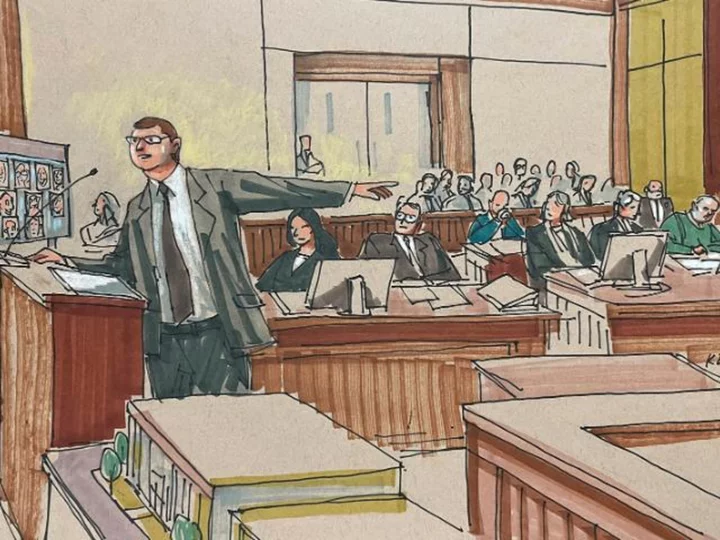Jurors on Wednesday will deliberate for a second day on whether to sentence Robert Bowers to death for killing 11 worshippers and wounding six others at a Pittsburgh synagogue in 2018.
The jury spent seven hours deliberating Tuesday. For a few minutes that day at their request, jurors also examined the guns used in the shooting at Tree of Life synagogue -- the deadliest attack on Jewish people in the US.
A decision to sentence the gunman to death must be unanimous. Otherwise, he will be sentenced to life in prison without parole.
Bowers, 50, was convicted on June 16 of all 63 charges against him stemming from the October 2018 shooting. Twenty-two of those counts were capital offenses.
The jury further found he was eligible for the death penalty on July 13, moving the trial to a third and final sentencing stage.
The trial's final phase focused on aggravating and mitigating factors that potentially apply to Bowers. Prosecutors, who have argued Bowers carried out the killings due to his hatred toward Jewish people, highlighted testimony from victims' family members talking about their loved ones, as well as Bowers' lack of remorse about his actions.
"He turned an ordinary Jewish Sabbath into the worst antisemitic mass shooting in US history, and he is proud of it," US Attorney Eric Olshan said in closing arguments Monday.
"This is a case that calls for the most severe punishment under the law -- the death penalty," he said.
Bowers' defense emphasized his difficult childhood and mental health issues, including what they say is a delusional belief system and diagnoses of schizophrenia and epilepsy.
"You've held Rob Bowers accountable. You've convicted him of 63 counts. You've found him eligible for jury sentencing. Now we ask you to choose life and not death," defense attorney Judy Clarke said Monday.
The case is the second federal death penalty case to be prosecuted under the administration of President Joe Biden, who had criticized the death penalty on the campaign trail.
The first case centered on a terrorist who drove a U-Haul truck into cyclists and pedestrians on a New York City bike path. The jury failed to reach a unanimous sentencing decision, leading to a sentence of life without parole. Both cases were holdovers from the Trump administration.
At the same time, the Biden administration has put a moratorium on federal executions.
How the attack unfolded
The attack began on the morning of October 27, 2018, with Bowers bursting into the synagogue and shooting at people with an AR-15-style rifle. At the time, the synagogue was hosting three congregations for weekly Shabbat services.
Those killed include a 97-year-old great-grandmother, an 87-year-old accountant and a couple married at the synagogue more than 60 years earlier.
Of the six wounded survivors, four were police officers who responded to the scene. Eight people who were inside the building escaped unharmed.
Prior to the attack, Bowers spent years posting hateful comments about immigrants and Jewish people on Gab, a small social media platform then used by far-right extremists. He criticized migrants as "invaders" and repeatedly disparaged the Hebrew Immigrant Aid Society, a nonprofit organization providing support to refugees. The society had recently held an event with the Dor Hadash congregation -- one of the three congregations holding Shabbat services at the synagogue on the day of the shooting.
Bowers also expressed his hatred for immigrants and Jewish people as he was being arrested and continued to defend his antisemitic beliefs in jailhouse evaluations earlier this year, witnesses have testified in the trial.

